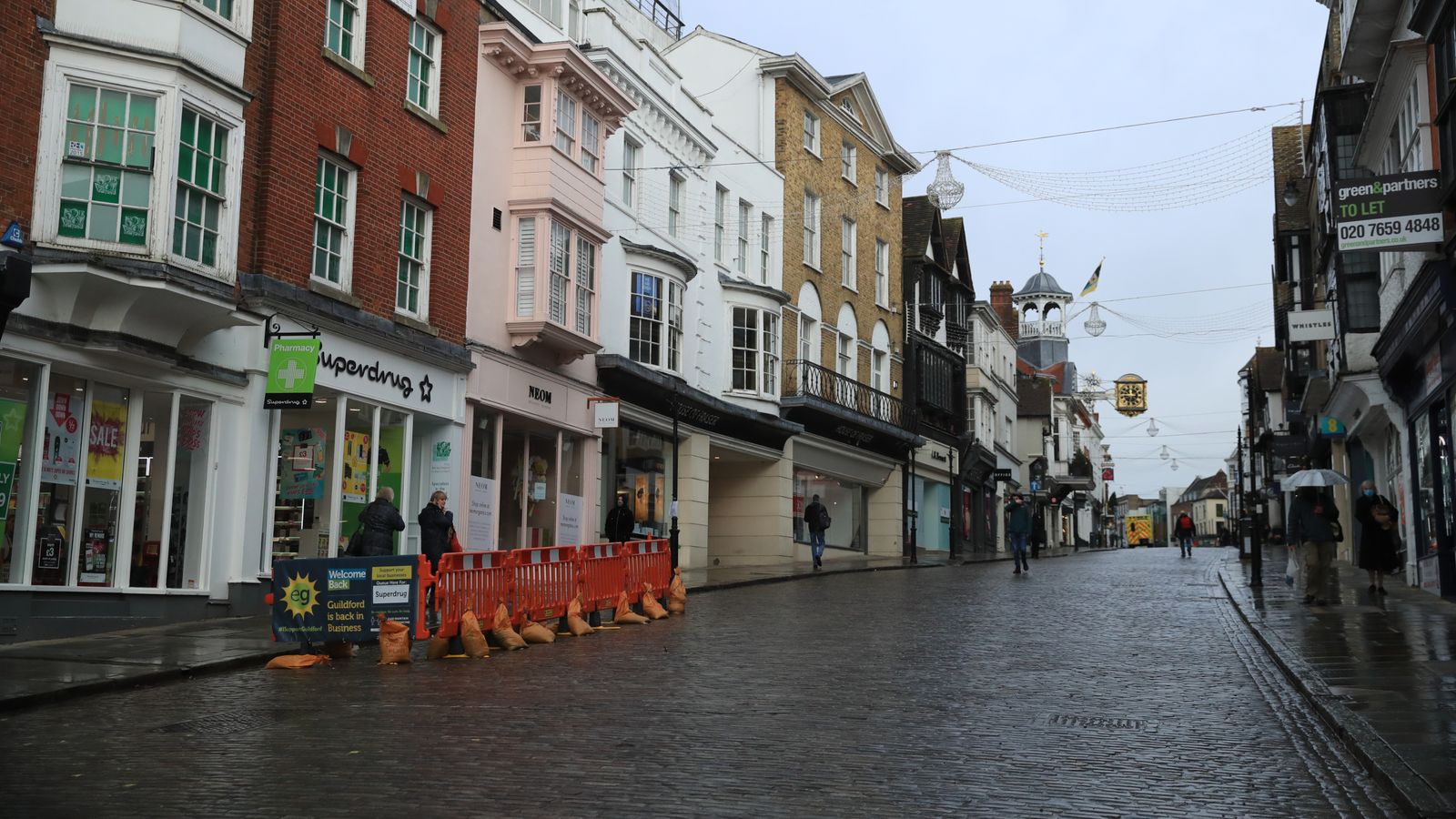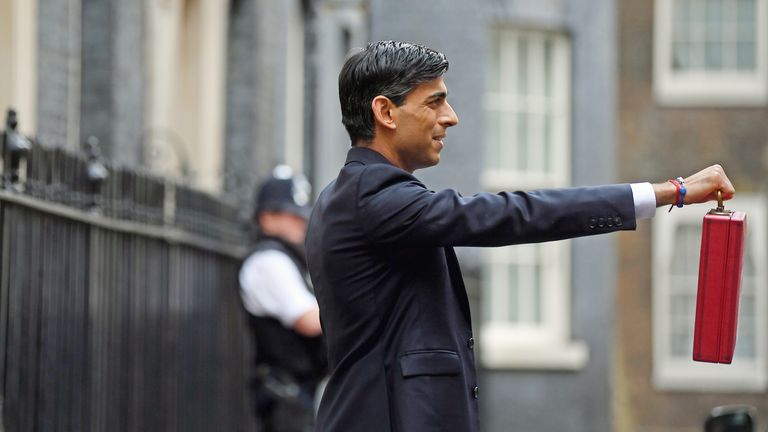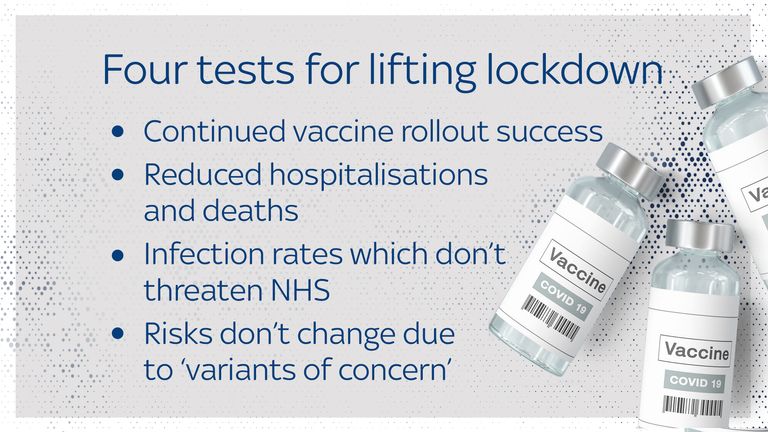Guildford High Street, with its pretty cobbled streets, chi chi shops and historical architecture, is the perfect example of an affluent commuter suburb.
But even this pleasant corner of Surrey hasn’t been immune from the economic shock of the pandemic.
The Hair and Beauty Bar has been a staple on the High Street for 21 years, but after being forced to close for the third time in 12 months, owner Gemma Raif is fearful of the future.
“The past year’s been very difficult,” she said. “I had a successful business that gave me a nice lifestyle, with no debt. Now I owe at least £35,000 in rent, which is not a nice place to be when you’re not used to being in debt. If the landlords decide to pursue me, it could be my house that could go.”
Gemma is a single mum with two children to support, and even if she is allowed to open her salon again on 12 April, she will be working to pay off the debt.
“I’m under a huge amount of stress, and I worry about the future. I’m wondering whether or not it’s worth continuing in this industry because realistically to pay debt back we’d need to up our takings by 20% a month – which is quite unrealistic. We need some more government intervention to allow us to survive.”
Help is coming in the budget, with the Chancellor Rishi Sunak set to announce a £5bn grant scheme to help businesses hit hardest by the pandemic – such as shops, pubs, clubs, gyms and hair salons – get access to new direct cash grants of up to £18,000.
But Gemma says businesses like hers also need support on business rates and VAT to help them survive. According to analysis from the Institute for Public Policy Research think-tank, 600,000 companies may not last the spring without more government intervention.
The difficulty for the chancellor ahead of the budget, is that at some point – with debt standing at £2trn – all this needs to be paid for.
Paul Johnson, head of the Institute of Fiscal Studies (IFS), said that while he doesn’t think there will be big tax rises in this budget, “I think we have got some tax rises coming down the line”.
He added: “The focus at the moment I think is getting the economy back on its feet. But what I’d like to hear from the chancellor is a commitment to getting that fiscal balance in the medium run. So I don’t really want him to say ‘I’m going to be raising taxes a lot this year’.
“But I do want him to be saying that, if in a couple of years we’ve still got a very big deficit which is adding to the overall debt, then he will do something about it and be clear that he is willing to raise taxes if that’s what’s needed.”
According to the roadmap out of lockdown set out by the prime minister, non-essential shops will open no earlier than the 12 April and restrictions will end no earlier than the 21 June.
If the data is worse than expected, the easing will slow down – but Mr Johnson from the IFS believes that the government should also be prepared to speed things up if the data is better than predicted.
Subscribe to the Daily podcast on Apple Podcasts, Google Podcasts, Spotify, Spreaker
He said: “If things move more quickly and more positively than expected, if we have a very high fraction of people vaccinated and very low levels of infection, then yes, it should be sped up. There’s no need to stick to a date if things go better than expected.
“And every month, every week of additional lockdown is costing not just the economy – it’s costing so many people so much in terms of their mental health, their education, their work and everything else, that it should be moved as quickly as is possible, consistent with doing it safely. So if we can do it quicker we absolutely should.”
Watch Sophy Ridge on Sunday from 8.30am today on Sky News, with guests including the Chancellor Rishi Sunak, shadow chancellor Anneliese Dodds, and Scottish Labour’s new leader Anas Sarwar.


